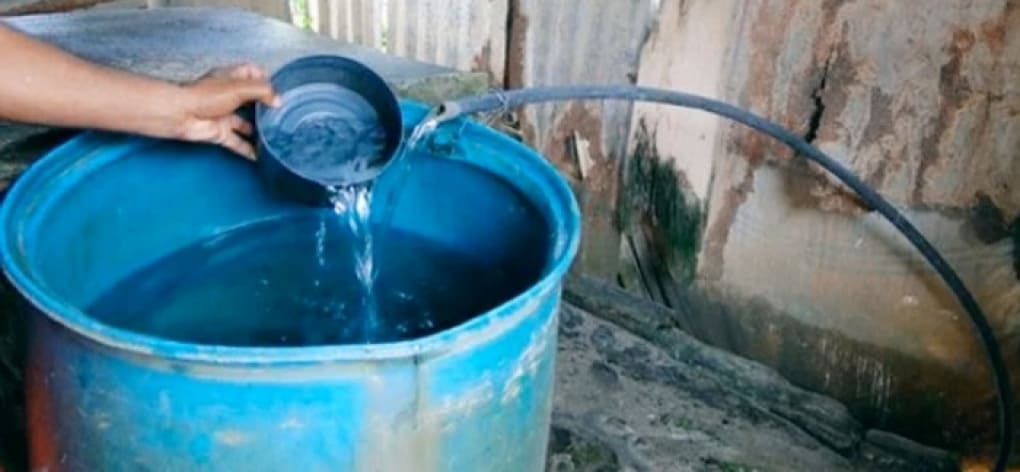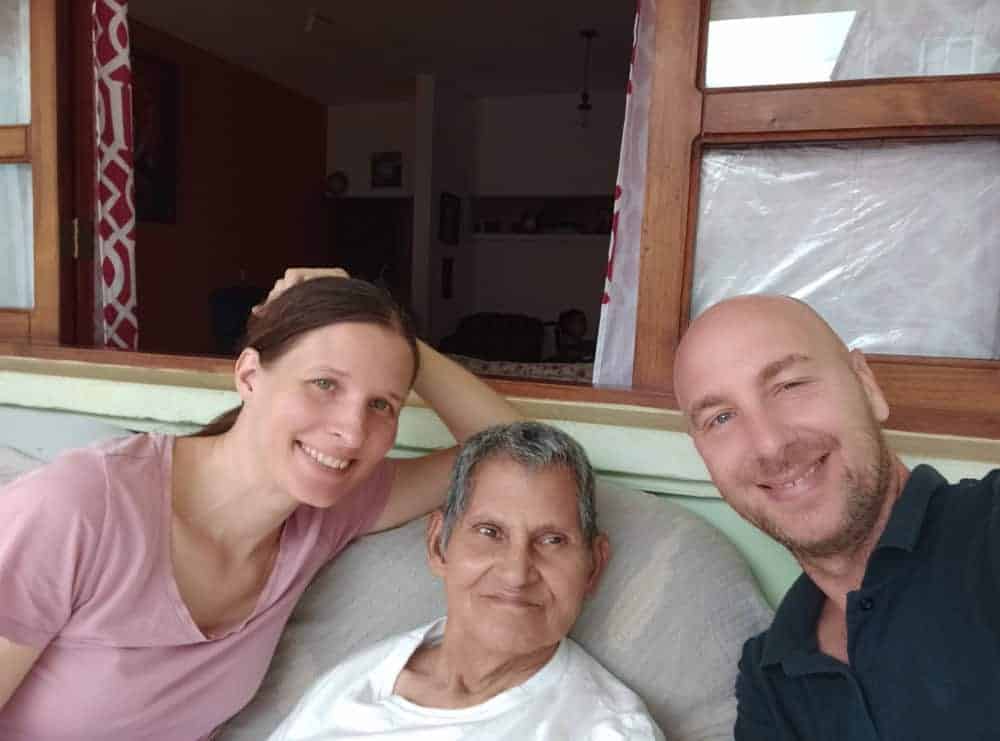Water is a liquid gold. It might not seem like a big deal in Europe or the West, but I believe there might come a time when we all recognize its true value, possibly even more than gold itself.
Think about it. Gold can’t help you wash yourself, cook, clean dishes or clothes, or keep your home clean. It can’t even quench your thirst.
In Honduras, water is highly valued. Central America is a dry desert region with little rain and inconsistent water distribution.

As I mentioned in a previous article, wealthier neighborhoods tend to have better access to this vital resource, while poorer areas like the Arc community face constant struggles for survival due to water scarcity.
The water level fell below the limit
“We need to turn off the water immediately!” Karina, the one who is in charge of Arc’s house in Tegucigalpa, announced with urgency.
In just a few days, a new water delivery is scheduled, but we’ve already almost used up all of the current supply.
We quickly went outside and opened the tank next to the house. A deep, dark void stared back at us from the bottom. There was barely any water left. We had to take immediate action and start conserving water extremely.
During our evening meeting, Karina mentioned that the water seemed to be draining much faster this month than usual. We wondered what could be causing it.

In a community like Arc, water consumption is much higher compared to an average household. There are eight people with intellectual disabilities living in the house, and they are always accompanied by at least three assistants.
The abundance of people in the house, combined with regular hygiene, cooking, care, and laundry, means that we need a lot of water.
Chayito – you can’t do without water
You’re in for a treat! Chayito, a lovely woman in her fifties with Down syndrome, has a quirky obsession with water. Picture this: she gets super excited, opens the taps with glee, and spills water all over herself and her clothes. It’s like a childlike joy bursting out of her.
But here’s the funny part. Chayito sometimes forgets to turn off the taps. When we, her assistants, are fast asleep at night, she can leave the water running for hours! It’s like a mini waterfall in the middle of the night.

To save money, we closed the valve under the sink, preventing her from wasting water.
When she went to the faucet and turned it on, no water came out. Despite this, she continued to rub her palms together as if she were washing her hands.
One week later, we were shocked to see water flowing again. Chayito was standing near the sink, soaking wet and smiling. She had somehow managed to turn on the bottom valve!
We then tried a second and final solution. We turned off the power to the main pump outside. This stopped the pump from working and prevented water from running through any of the faucets in the house. We did this in the evening before going to bed, and it worked! The water issue was finally resolved.
Hector – flushing the toilet down to the last drop
Meet Hector, a young boy with Down syndrome. One thing that sets Hector apart from others is his unique water usage pattern. The toilet bowl seems to have a special fascination for him, leading to an unusually high water consumption.
When Hector uses the toilet, he sometimes spends a lot of time there, even after the toilet is clean and has been flushed. He keeps flushing the toilet bowl repeatedly, even though there’s nothing left to flush.

If Hector is missing for a long time, his assistant knows to check the toilet first.
Imagine a scenario where the conditions are unlike any other family’s. The challenge we faced was genuine and severe. How does one manage to survive for seven days with such a limited water supply?
Turned off the heater
To start, we had to turn off the water heater. We had to do this to prevent the heater from overheating and potentially catching on fire because if the water level falls below a particular mark at the tank’s bottom, it wouldn’t have any water to heat – a dangerous situation.
As a result, we had to wash with cold water for a few days. Although Honduras is typically warm, Tegucigalpa’s mornings and nights are chilly, with temperatures dropping to 12 degrees at night and in the early hours!

Every morning, I’m responsible for washing the boys. I used to pour cold water over them from a big blue plastic barrel, called a “shower” here. It was quite the wake-up call! But the boys are used to cold showers in the morning, so they took pity on me.
When we turned off the heater, there was still enough water in the faucets for washing dishes, cleaning, and washing our hands.
We turned off the electricity to the pump
Unexpectedly, two days later, a water shortage forced us to turn off the electricity to the pump, which stopped the flow of water from the taps.
Meanwhile, Denia, who oversees the community, promptly called the water company and placed an urgent order for water delivery, which came at a cost. Unfortunately, the community’s financial resources are limited, and the regular water supply would arrive too late. We desperately needed her assistance.
As the holiday season in Honduras drew to a close after two months, the children returned to school, and our boys and girls enthusiastically resumed their daily work in the workshops.
In the mornings, following breakfast, our chicos, accompanied by their assistants, leave the house and head to another Arc building, where they engage in various tasks that align with their abilities and interests.
Nowhere without a morning shower
In Honduras, morning showers are a common routine. So much so that when there’s no water, many people skip leaving the house altogether.

In our house, when water became so scarce that we had to prioritize it for essential tasks like washing dishes, showers were out of the question. This meant boys and girls stayed at home.
Eventually, even the water we had stored in barrels ran out. We were forced to manually take water from an underground cistern, just like people did with wells in the old days.
To cope, we stocked up on extra supplies as we waited for the water company to deliver and fill our cistern. Unfortunately, they were two days late, leaving us in a bind.
Now, just a plastic basin…
We carried water from the well to the kitchen in a large plastic basin to wash the dishes. One of us washed the dirty plates with detergent while the other poured water from the basin over the plates using a bowl. We also flushed the toilets using basins, but only a few times a day to save water for other tasks.
While I was writing, I heard a truck approaching. The large patio door opened, and water poured from the pipes across the yard into our cistern.
We rushed to make the most of the water. We quickly ate lunch, then escorted the boys and girls to the shower, where we soaped and washed them for the first time in two days. We all took a moment to catch our breath. Life had been tough for everyone in the house that week.

The assistants were constantly planning how to use the water wisely. We carried empty or full basins back and forth along the corridors, from the bathroom to the laundry room, kitchen, boys’ and girls’ rooms, and back to the bathroom. It took a lot of energy, and we were exhausted by the end of the day.
We have to help them!
After this experience, Silva and I set up a new donation account to raise funds for Arc’s community in Honduras. We agreed with Denia, the community leader, and Carolina, the president of Arc in Honduras.

They were so thankful and told us how much the money would help them with everything their community needed.
Arc cares deeply about the quality of life of people with intellectual disabilities. Particularly in places where these individuals face stigma, neglect, and exclusion, it’s crucial to support them in living with dignity, just like everyone else.
Together, we’re committed to helping them in any way we can.



